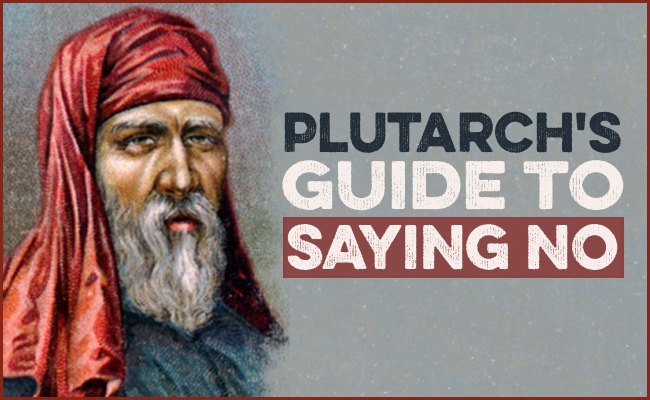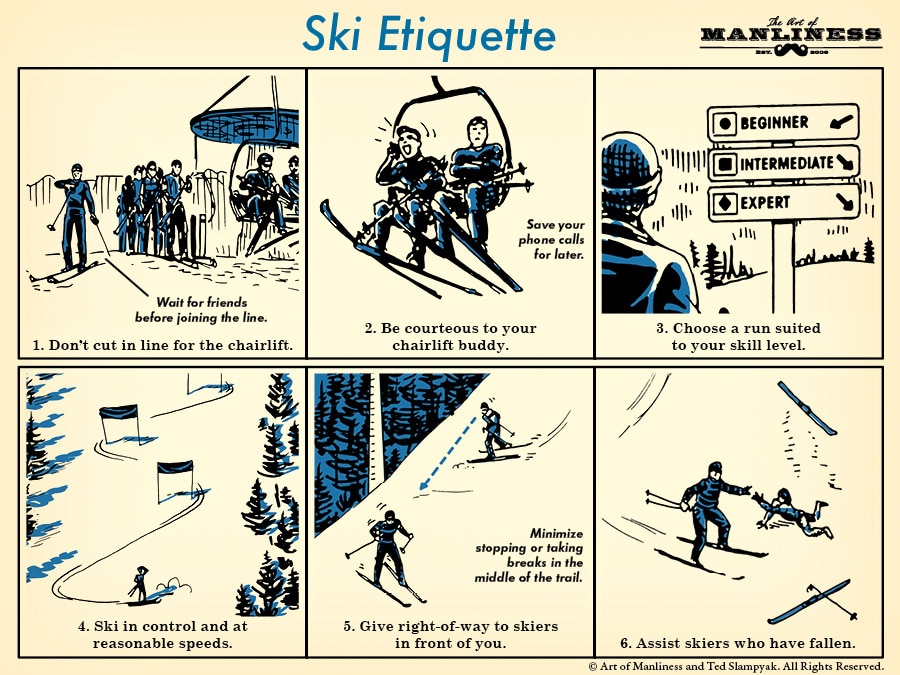
Ever feel like you can’t say no? Like you’re constantly doing things you don’t want to to avoid letting others down or having them think less of you? You’re not alone. Saying no to people’s requests is something I’ve had to work on throughout my adult life. I know a lot of other people who have trouble saying no, too.
And it isn’t just a modern problem.
My recent interview with Alex Petkas about Plutarch’s Lives led me to revisit the ancient writer’s Moralia — a collection of essays about topics ranging from how to manage your anger to knowing if you’re growing in virtue. Plutarch’s got an essay in there on the issue of people-pleasing. The Greek word Plutarch used for people-pleasing was dysōpia, which is roughly translated to “the embarrassment that makes us grant unjustified requests.”
In today’s article, we’re going to take a look at what Plutarch said about dysōpia and his ancient-yet-still-relevant advice on how to overcome it.
The People-Pleaser’s Paradox
Plutarch notes that excessive people-pleasing often comes from a good place. Courteous and conscientious people are the ones who typically struggle with dysōpia. Those who care about doing the right thing and about how they look in the eyes of others are capable of shame, and like other ancients, Plutarch thought shame could be a very healthy thing; shame was a virtue because it checked reckless and selfish behavior.
But, Plutarch observes, someone can be too sensitive to shame, and it is from this overweening sense of shame that people-pleasing arises. A person who struggles with dysōpia feels excessive shame for something they shouldn’t: saying no to annoying or unnecessary requests. Plutarch takes an Aristotelian approach to the virtue of shame: you should feel it at the right time, for the right reasons, and at the right intensity. Because dysōpia is an inappropriate experience of shame, Plutarch considered it a vice.
The Real Cost of Never Saying No
Plutarch catalogs the price we pay when we succumb to dysōpia:
- We make promises we can’t keep.
- We lend money to people who won’t repay us.
- We compromise our integrity.
- We sacrifice our needs and values to avoid momentary discomfort.
- We allow ourselves less time to focus on the people and causes that are really important to us.
Plutarch’s most keen insight about the cost of not saying no to people is that we often end up creating the very thing we were trying to avoid: embarrassment and a bad reputation.
Here’s Plutarch’s thinking:
- A people-pleaser says yes to requests to avoid feeling bad about saying no and to build a reputation as a helpful person.
- But because the people-pleaser never says no, they overcommit and fail to follow through on the commitments they’ve made.
- Consequently, they gain a reputation for being a flake and are looked down upon by others and feel bad about themselves.
Plutarch’s Guide to Breaking Free From People-Pleasing
Plutarch offers practical advice on overcoming the vice of people-pleasing:
1. Start Small
Don’t try to transform overnight. Start with low-stakes situations:
- Decline the extra drink offered at dinner when you’ve had enough.
- Send your meal back at a restaurant when it wasn’t made right.
- Exit conversations you aren’t enjoying.
2. Practice Strategic Silence
If someone makes an unreasonable request, Plutarch doesn’t think you always have to respond. Sometimes, you don’t need to say anything at all. As Plutarch puts it, “Silence is an answer to the wise.”
If a random person on LinkedIn messages you to “pick your brain” for an hour, ignore it. If a family member texts you asking for a big loan, delete it.
3. Remember Your Past Regrets
Plutarch recommends reminding yourself of moments when you said yes to something you didn’t want to do and how crappy you felt afterwards. Hopefully, the painful memory will keep you from making a similar mistake.
4. Adjust Your No Depending on the Person
Plutarch was a keen observer of human nature, particularly social status. He understood that how you refuse someone varies based on their status. Here’s Plutarch’s playbook to saying no based on social status:
Dealing With Power Players
You know the type — high-status individuals used to getting their way. Maybe it’s your boss or an influential client.
With these types of people, whose good graces you generally want to stay in, Plutarch recommends taking a subtle approach to saying no.
Instead offering a direct, terse no that may ruffle their feathers, try:
- Appealing to their sense of excellence and artistry.
- Making it about living up to their high standards.
- Turning their pride into your ally.
If a prestigious client is pushing you to cut corners on a project, frame your no in terms of maintaining the exceptional quality they’re known for. “I know you’ve built your reputation on outstanding work. That’s why I can’t in good conscience rush this crucial phase.”
Regular Folks
With people who don’t hold power over you but make requests to which you don’t want to acquiesce, Plutarch suggests using humor to tactfully decline.
So if a well-meaning, clueless person asks you to join their MLM, say something like, “Thanks for the invite, but I still have protein powder in my garage from the last multi-level marketing business I joined. Have to park the car in the driveway! Ha!”
If you can’t inject humor, Plutarch thinks giving a straightforward no is completely fine:
- I don’t lend out my tools anymore.
- I’m unavailable that evening to help.
- My policy is to only offer those opportunities to grad students.
- I don’t do morning meetings; that’s my focused work period.
- That’s not possible.
- No, but thanks for thinking of me.
The Shameless Ones
These guys are the professional boundary-pushers who treat “no” as the opening bid in a negotiation. You know who I’m talking about — the people who just. won’t. quit.
For these people, Plutarch recommends fighting fire with fire.. When someone’s being shameless in their demands, you have permission to be equally shameless in your refusal. Tell them to pound sand. Kick rocks. Jump in a lake. Sit on it.
As Plutarch says: “A handy arm with knaves is knavery.”
I found this bit of advice particularly helpful for some reason. If people can be bold with their asks, then I can be just as bold with my nos.
The Buck Stops Here
For Plutarch, learning to say no isn’t just about being assertive — it’s about being true to your telos in life.
The goal isn’t to become cold or unhelpful, but to find a balance between kindness and self-respect. As Plutarch puts it, we need “a harmonious blend” of courtesy and firmness. The above advice can help nudge you more toward the self-respect side of the spectrum if you’ve had a problem with people-pleasing your entire life.
Go Deeper
We’ve put out lots of podcasts and articles over the years on how to overcome people-pleasing and say no. Check out these AoM classics to go deeper into this subject:







